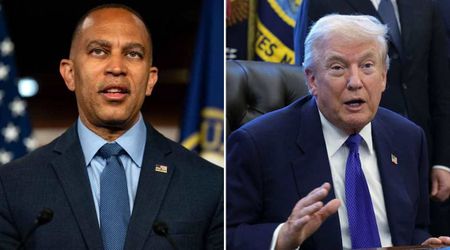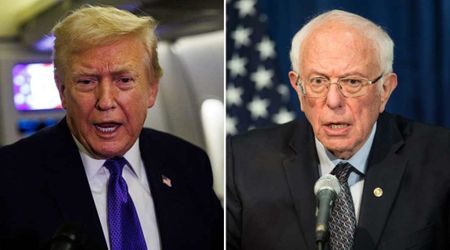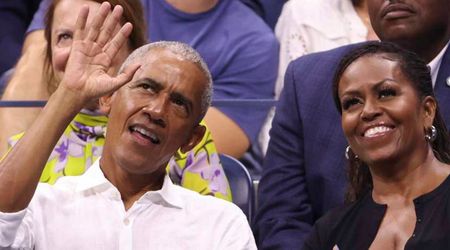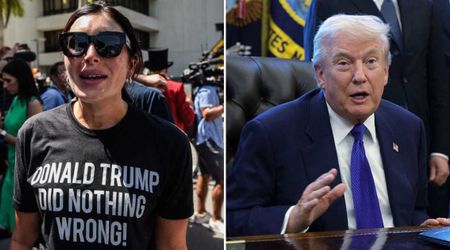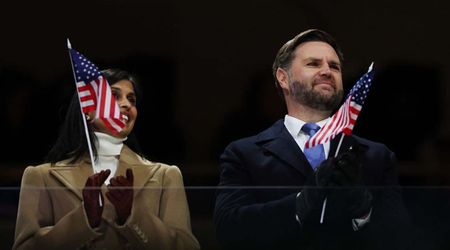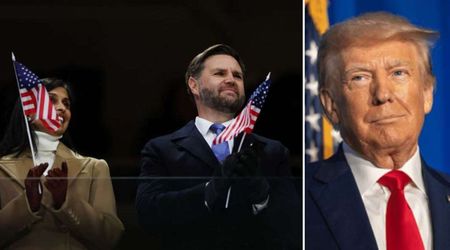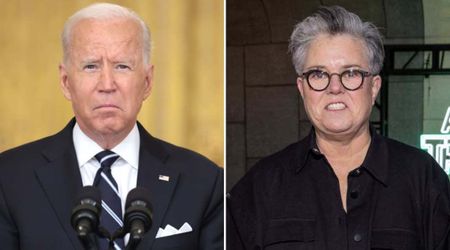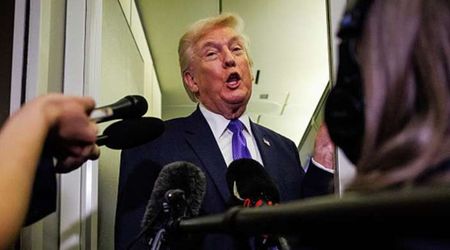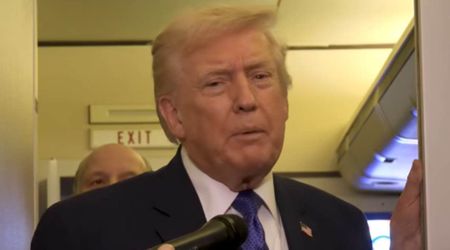A 'fair' trial for Trump: Impact of overturned Harvey Weinstein conviction on hush money trial
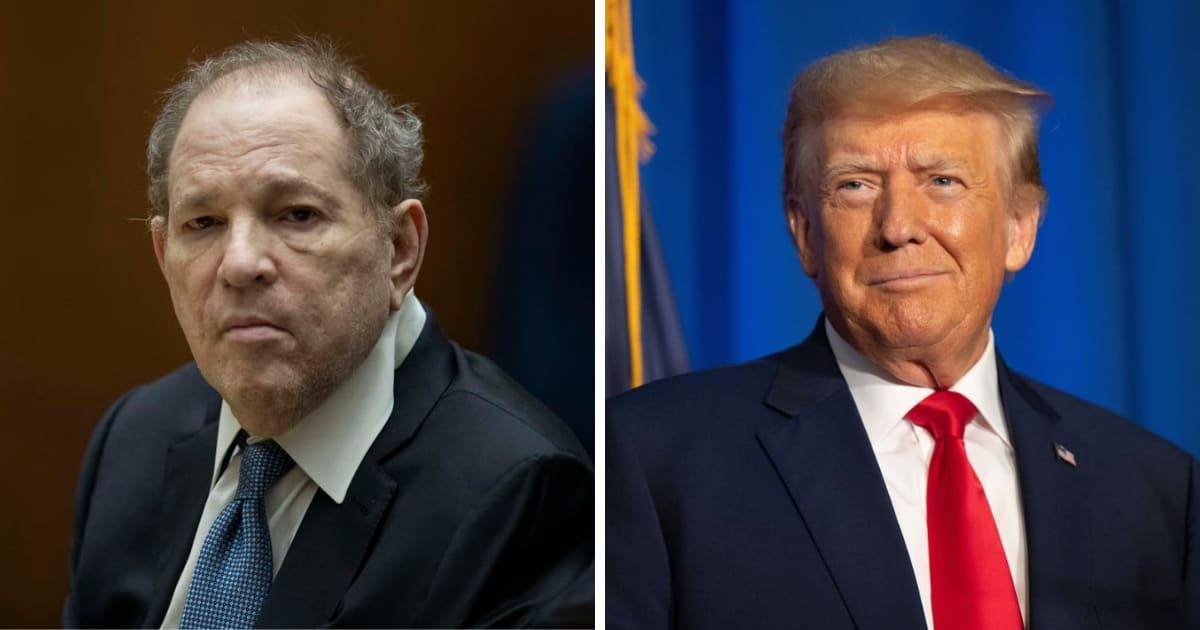
NEW YORK CITY, NEW YORK: The New York Court of Appeals on April 25 overturned the 2020 rape and sexual assault conviction of former movie producer Harvey Weinstein. The decision by NY's highest court could positively impact former President Donald Trump, who is currently under trial in the hush money case.
Though the matter at hand in both cases is different, the primary message it put forth was the necessity of a "fair" trial despite the position or popularity of the defendant.
The 4-3 ruling favoring Weinstein concluded that the jury was impartial against the ex-producer because the judge overseeing the trial permitted women to testify about allegations that were not related to the case.
"It is our solemn duty to diligently guard these rights regardless of the crime charged, the reputation of the accused, or the pressure to convict," the majority said, upending the 2020 verdict against Weinstein, as per CNN.

Impact on Trump's hush money trial
The appeals court reversed the earlier decision, citing the "Molineaux" and "Sandoval" rulings against the convict. The appeals court found problems in both; the first acknowledged testimonies from three other women who raised sexual misconduct accusations, and the second allowed prosecutors to question Weinstein about irrelevant misconduct if he opted to testify.
According to legal observers, the latest developments in Weinstein's conviction could be relevant in the ongoing hush money trial against Trump in Manhattan.
Judge Juan Merchan has been making new decisions most days regarding what kind of evidence should be presented before the jury.
Weighing in on the potential impact, attorney Douglas Wigdor, who represented many Weinstein accusers, said on CNN that if he were representing the former president, he "would have been in court that very morning waving this decision in front of the judge's face saying that he needs to reconsider his Molineux and Sandoval ruling."

"I would be seeking a mistrial at this point – they've already let in the evidence that the judge had relied on," the lawyer added.
In the Weinstein trial, the appeal court ruled that the bad act witnesses who testified were utilized to imply guilt, which was deemed impermissible.
The issue becomes significant for Trump if Karen McDougal, who had an alleged sexual relationship with the ex-president, is called to testify.
Though the possibility of her taking the witness stand remains unclear, this could cause an issue since their relationship and the hush money payment to her are not part of the indictment against Trump.
The 34 criminal charges against him stemmed from falsifying business records to cover up the $130,000 payment to adult film actress Stormy Daniels shortly before the 2016 election to silence her about their alleged sexual encounter.

In March, Merchan ruled that prosecutors could introduce McDougal's testimony about the payment she received but prohibited details about her relationship with Trump.
Stephen Gillers, professor of law at New York University, said, "This will be the most significant case he [Merchan] has ever tried. He does not want to risk reversal in the event of conviction."
Importance of 'Sandoval' ruling
The Sandoval ruling that emerged from the 1974 murder case against Augustin Sandoval, where his attorney wanted to restrict bringing up the defendant's past crimes to avoid prejudice to the jury, is also relevant in the Trump trial.
The NY appellate court harshly criticized the Weinstein trial judge citing the Sandoval ruling, which would have permitted the prosecution to introduce certain "bad acts" if the former film producer had taken the stand.
Since Trump expressed his intention to testify and "tell the truth" in the trial, Judge Merchan laid out specifics of what prosecutors can ask while cross-examining the White House hopeful.
As per the judge's Sandoval ruling, the prosecution can ask the ex-president about the New York civil fraud case, his violation of the gag order, and the defamation case by E Jean Carroll, which he lost.

Deborah Tuerkheimer, an ex-Manhattan prosecutor and current law professor at Northwestern University, said Merchan was focused on evidence closer to the criminal allegations against Trump.
"The kinds of bad acts or misconduct at issue are different in Weinstein and Trump, and in Trump's prosecution you don't have the same parade of witnesses," she added.
Arthur Aidala, Weinstein's attorney, said in his conviction appeal that the movie mogul wanted to testify but decided not to after the witnesses and evidence brought before the court. The lawyer added that Trump would face the same situation in the trial.
"No one in their right mind would testify based on the ruling of what prior bad acts he could cross examine on," Aidala told reporters after the new ruling. "Harvey will, under this new ruling, be able to take the stand, will be able to tell his side of the story."
According to him, Weinstein refrained from testifying because of the potential questions during cross-examination. Therefore, the decision in Weinstein's case could give a picture of a likely appeal if Trump was convicted.

